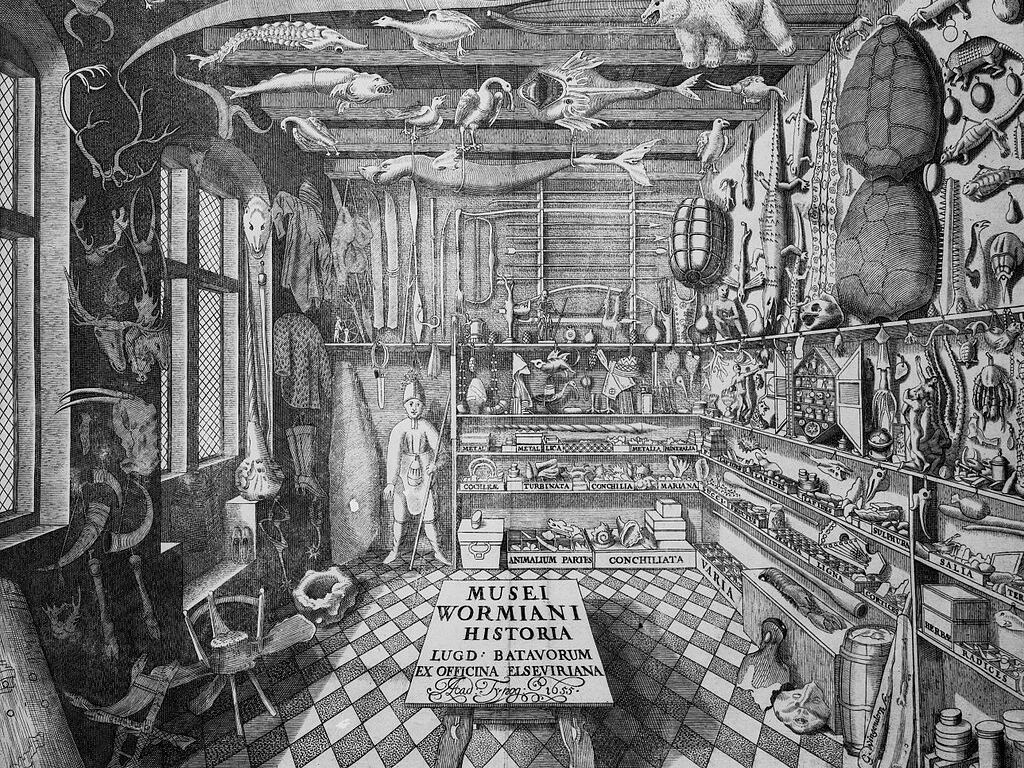HUMS 220, Collecting Nature

Course Description:
In the early modern period, a vast variety of people – aristocrats, apothecaries, merchants, and naturalists – assembled large collections of natural specimens and artworks. In these cabinets of curiosities or Wunderkammern, mythical objects, such as basilisks or unicorn horns, shared the same space with medicinal herbs, mummified animals, Roman antiquities, and artifacts from non-European places. This seminar explores the history of these early collections, situating them in the context of European colonial, imperial, and mercantile expansion. We will discuss these early museums as spaces that simultaneously challenged and redefined boundaries between the natural and the artificial, the exotic and the domestic, the imagined and the authentic, the virtuous and the sinful. Class discussions will go back and forth in time: we will connect the history of early modern collecting to questions related to contemporary movements to decolonize the museum.
Led by:
 |
Professor Paola BertucciMy research investigates how the interactions between humans and artifacts shaped the production of natural knowledge in the early modern period. My approach brings together the history of science with the history of technology and the history of medicine, as well as more broadly, cultural and economic history, art history, social studies of science and technology, and studies in material culture.
By exploring the relationship between humans, artifacts and natural knowledge, I seek to understand the ways in which this relationship shaped or challenged perceived boundaries between the natural and the artificial, the hand and the mind, knowing and making, science and industry, individual profit and public utility. I am also interested in the role of artifacts in the articulation of Enlightenment epistemic categories (such as natural order, the “normal” body, human progress), as well as in the scientific, commercial, political, and social networks that scientific and technical artifacts created.
I have published widely on the involvement of the human body in electrical experiments, on collecting and museums, on the public culture of science, as well as on industrial espionage and secrecy. My first book focuses on scientific culture, particularly electrical experimentation, in 18th-century Italy, Viaggio nel paese delle meraviglie. Scienza e curiosità nell’Italia del Settecento, (“A Journey in the land of marvels: Science and curiosity in 18th-century Italy”, 2007). I also co-edited a volume on the history of the medical applications of electricity (Electric Bodies. Episodes in the history of medical electricity, 2001).
My second book, Artisanal Enlightenment: Science and the Mechanical Arts in Old Regime France (Yale University Press, 2017), argues for the centrality of the mechanical arts and the world of making in the Enlightenment. With a radical shift of historical actors, it brings to the forefront the figure of the artiste, a learned artisan who defined himself in contrast to philosophers, savants, and routine-bound craftsmen. Artisanal Enlightenment was awarded the 2019 Louis Gottschalk prize for best book in eighteenth-century studies by the American Society for Eihteenth-Century Studies.
I have been active in bringing the history of science to the broader public. Betweeen 2004 and 2007 I collaborated on the renovation of the Museum of the History of Science in Florence, now Galileo Museum, where I curated two permanent galleries: The Spectacle of Science and Science at Home. I am currently working on the first History of Science and Technology Gallery at the Peabody Museum (to open in 2023). At Yale, I teach courses on The Scientific Revolution, The Art and Science of the Body, Collecting Nature and Art, History and Material Culture.
My work has been acknowledged with the 2019 Louis Gottschalk prize for best book in eighteenth-century studies, the 2016 Margaret W. Rossiter Prize for best article on the history of women in science awarded by the History of Science Society, and the 2015 Clifford Prize for best article in 18th-century studies awarded by the American Society for Eighteenth Century Studies. In 2012 I received the Poorvu Family Award for Interdisciplinary Teaching from Yale College.
|